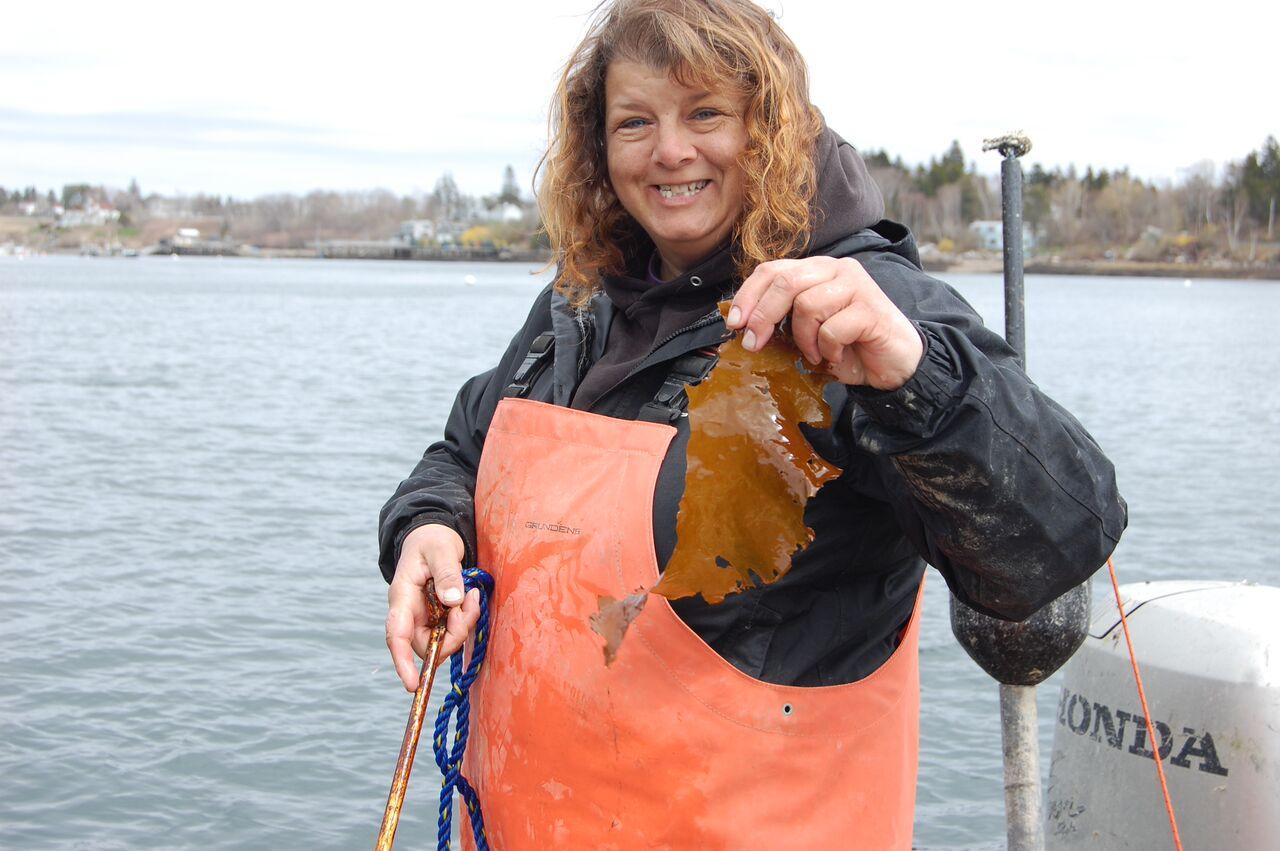
By Hugh Cowperthwaite
Give a man a fish and he’ll eat for a day, goes the proverb. Teach a man to fish, and you feed him for a lifetime. So, what if you teach a lobsterman to raise kelp?
Farming, forestry, mining and fun (recreation) make up the top vocations for residents of rural America, according to the USDA. In coastal, rural places like Maine, you can add fishing to that list. Independent and entrepreneurial, commercial fishing is not as industrial as its land-based peers in 'Big Ag.' That makes for a unique workforce demographic.
In 2015 the total value of Maine’s commercial fishing catch rose 4.4 percent from the year before, while the total live weight of 276.5 million pounds was down 10.6 percent, according to the Maine Department of Marine Resources. The lobster haul last year accounted for 80.4 percent of the catch’s value. Sure, everyone knows Maine is the largest lobster-producing state in the nation, but that sort of lopsided ratio carries risk.
“Maine’s lobster fishery continues to be a major engine for our coastal economy,” the state’s Department of Marine Resources commissioner, Patrick Keliher, told the Portland Press Herald in a statement. “Last year saw a continuation of steady and historic lobster landings throughout the season. The increase in value reflects growing demand for Maine lobster.”
Keliher noted the risk associated with so much of the industry’s revenue coming from a single species.
“It shows that we all must be working hard to build and sustain our commercial fisheries and to create more diverse opportunity, be it with traditional commercial fisheries or (by) expanding the role of aquaculture,” he said. “This work is critical to ensure we can adapt to changes in landings and value in future years.”
This is not news to anyone who’s engaged on the working waterfront.
Historically, fishermen have fished a variety of species seasonally so they were not dependent on just one species for their livelihood. Now with Maine’s wintertime shrimp fishery closed, the scallop, urchin and clam fisheries limited, and ground fishing consolidated into the hands of the largest operations due to a much-reduced resource and higher operating costs, the only income many the region’s fishermen have today is from lobstering, an industry notorious for price fluctuations and unpredictable costs.
Mission investors and lenders like Coastal Enterprises, Inc. (CEI) are devising creative ways to keep fishing sustainable, from forming cooperatives to funding innovations and enterprises.
Consider the experience of Lisa Moore. She’s like many of Maine’s lobstermen and women who have sought supplemental income to make ends meet. A sternman during the lobstering season, for the last four years Moore has been harvesting and selling wild kelp.
“Up until now, we could only bring kelp to Ocean Approved every other day because they couldn’t process everything,” Moore said. “Now, we’ll able to bring them everything we harvest.”
Kelp is a $5 billion-a-year industry internationally, and virtually all of it is harvested and dried in Asia. Moore, however, is selling her wild harvest kelp to Ocean Approved, a Maine-based kelp farm and processor. Ocean Approved recently closed on a $500,000 capital raise in partnership with CEI, Maine Venture Fund, the Island Institute and two angel investors. The impact investment will be used to upgrade and vastly increase Ocean Approved’s processing capacity, which has not been able to keep up with supply or demand. Ultimately, Ocean Approved plans to produce 100 percent of its product from farmed kelp, and Lisa wants to be one of the company's farmers.
With increased processing capacity, years of research and development studying the optimal way to farm kelp in Maine, and an open-source approach to kelp farming, the expanded processing capacity will spur sales and allow Ocean Approved to enter into buying contracts with kelp farmers around the state.
“We have built our business model on an all-boats-rise philosophy,” said Paul Dobbins, one of the owners of Ocean Approved. “We want to expand our business but we also want to encourage others to begin farming kelp. More volume will help support the infrastructure to grow the industry.”
In addition to providing a viable economic alternative to lobster fishermen, kelp has significant positive environmental impacts, including reduction of ocean acidification and inshore eutrophication, which is occurring at accelerating levels in the Gulf of Maine. Kelp farming provides Maine’s lobstermen with a diverse revenue stream, so they are not relying exclusively on lobstering.
“Kelp farming occurs in the off-season for most lobstermen, from about November to April,” notes Dick Clime, a project developer for CEI’s Fisheries Program who, in partnership with Maine Sea Grant Extension, the Maine Aquaculture Association, and the Maine Aquaculture Innovation Center has created a curriculum for lobstermen interested in aquaculture.
“Fishermen know the water, they have boats, and they are business-minded,” Clime said. “Those qualities make them the perfect fit to start kelp farming.”
Image courtesy of the author
Hugh Cowperthwaite is the Director of the Fisheries Project at Coastal Enterprises, Inc. (CEI). CEI a mission-driven lender and investor specializing in rural economic development in Maine and throughout the U.S. CEI combines financing, advising services and policy leadership to help create economically and environmentally healthy communities in which all people, especially those with low incomes, can reach their full potential.
TriplePundit has published articles from over 1000 contributors. If you'd like to be a guest author, please get in touch!














